Understanding the Process for Afghan Evacuees Entering America
September 18, 2021
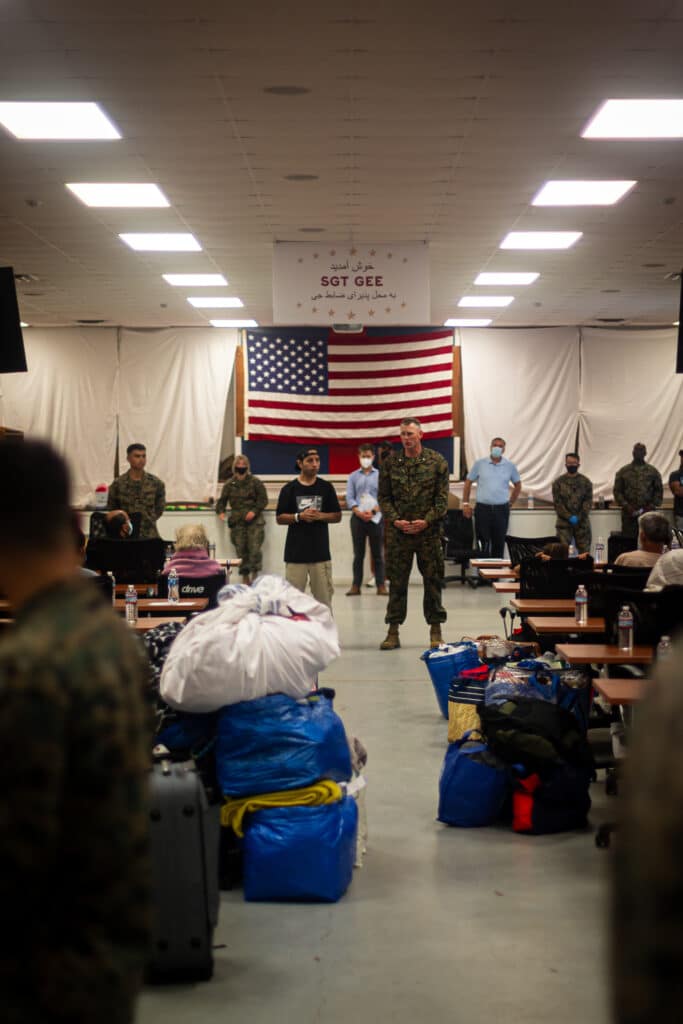
As you may already know, Soldiers’ Angels has been supporting the effort to evacuate Afghan Allies to safety. Our work has been focused on assisting military bases hosting Afghan evacuees by providing much-needed items to support the Afghan families during their resettling process. With this article, we hope to shed some light on the process for Afghan evacuees entering America.
As a military/Veteran-focused organization, our mission is to provide aid, comfort, and resources to the military, Veterans, and their families. Although we are not typically a refugee-focused organization, in this case, the aid and resources were requested of Soldiers’ Angels directly from military installations.
For the most part, Soldiers’ Angels has received overwhelming support from our staff, board, donors, volunteers, and supporters for the part we are playing in the Afghan resettlement. However, there have also been many negative comments, questions, and concerns voiced on our social channels. With the information presented below, we hope to address those items and provide more insight into the steps and processes behind this historic resettlement.
The words below that address the process for Afghan evacuees entering America were not written by Soldiers’ Angels. Soldiers’ Angels is a proud member of The Evacuate Our Allies Coalition and these points were provided by The Coalition, which is made up of Veterans, human rights, religious, and refugee organizations.
The Evacuate Our Allies Coalition was formed in the wake of U.S. President Biden’s announcement of withdrawal of US forces from Afghanistan in April 2021. Their mission is to ensure the rapid evacuation and rescue of vulnerable Afghans who are at risk of persecution from the Taliban, and their prompt resettlement in the United States. This includes, but is not limited to, those eligible for the Special Immigrant Visa (SIV) program.
Please, take a moment to review the processes below and learn about this major undertaking. And please remain empathetic to how difficult this has been and will be for them to leave behind their country, their culture, and, in many cases their family members.
This is a cause that all Americans need to rally behind. For this great transition to work, it will take understanding, education, a humanitarian heart, and open arms on the part of Americans.
Security Vetting
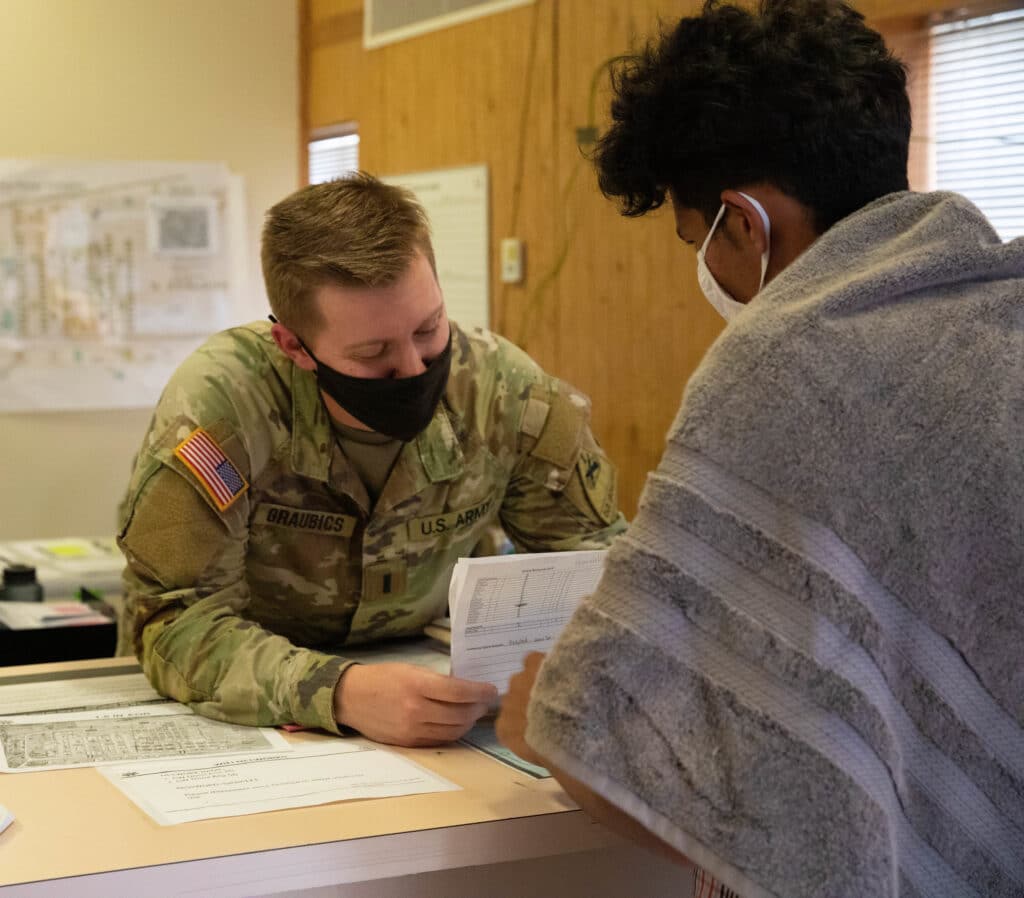
Afghan evacuees are undergoing thorough security vetting before entering the U.S., and the process works. Since the beginning of the evacuation process, national security officials have been working around the clock to process Afghan evacuees safely and efficiently.
- Since 9/11, the U.S. has built the most robust screening and vetting apparatus in its history. The process leverages the combined capabilities of all federal government departments including Homeland Security, Defense, National Intelligence, Justice, State and the FBI.
- Security vetting procedures have been enhanced continually. Individuals are admitted to the U.S. only if they pass all biographical and biometric security checks.
- These checks compare facial and fingerprints biometrics against all of the U.S. Government’s biometrics holdings including: DHS’s Automated Biometric Identification System (IDENT) and the FBI’s Next Gen Identification System, DOD’s Biometrics Agency’s Automated Biometric Identification System (ABIS).
- Individuals’ biographic information is also checked against multiple national security and criminal record databases, such as the Terrorist Screening Database.
- The vetting process has raised security flags on a handful of evacuees. This is a sign that our procedures are robust and working as intended. The detection of these individuals is a testimony to the effectiveness of our vetting process.
- Throughout the evacuation and resettlement process, our enhanced security measures have been implemented to their fullest extent. They have, and will continue to, put the safety of Americans first.
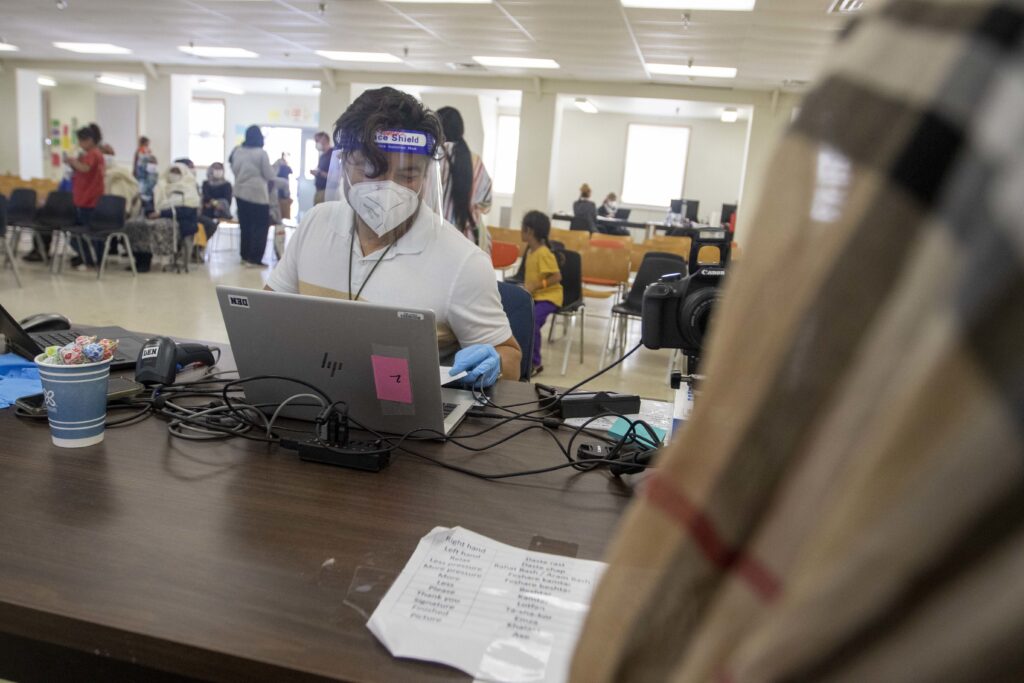
Security vetting is a critical – and effective – part of an evacuation effort that will ultimately enhance our national security.
- Our national security professionals and other federal officials are constantly working to ensure that Afghan evacuees are being processed and resettled in a way that enhances safety for Americans and the evacuees alike.
- A resettlement of this magnitude is bound to have some challenges. However, we have an obligation to accept and manage these challenges given the dedication and support of our Afghan allies over the past two decades. Their efforts working with Americans on the ground in Afghanistan helped keep our nation safe in the wake of 9/11.
- Providing a safe haven for our allies is not just a humanitarian imperative – it’s a national security one. As the Taliban consolidates control in Afghanistan, welcoming vulnerable Afghans helps us combat the threat of extremism and stem radicalization.
This is a Veterans’ issue. Many Veterans strongly support our obligation to take care of our Afghan allies, especially those who worked alongside Afghan interpreters and other partners for years. Veterans know firsthand how important it is for the U.S. to keep its promises to these allies.
Countering Anti Refugee, Anti-Afghan Sentiment
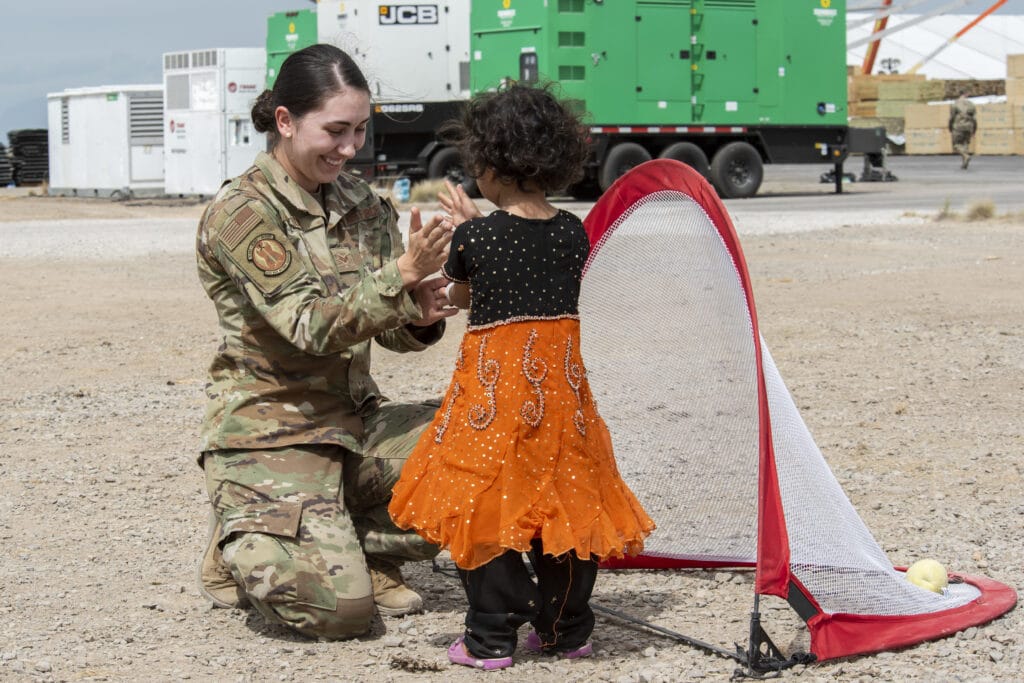
The United States should demonstrate moral courage and increase our commitment to help refugees from around the world, including at-risk Afghans seeking a safe place to live and raise their family.
- Claims that we should slam the door shut on at-risk Afghans because of where they come from or what faith they practice are unconstitutional and un-American. They go against the very core of our First Amendment rights. We cannot succumb to such blatant bigotry.
- Politicians should not exploit international or domestic tragedies to further their own political agendas. History will certainly judge our actions today as courageous or cowardly.
- Here, in the United States of America, we are reaping the benefits of hard work and determination from generations of immigrants and refugees who came to this country seeking the chance to create a better future. Millions of people have been greeted by the sight of the Statue of Liberty serving as a beacon for the huddled masses yearning to breathe free. For some of their descendants to now deny today’s refugees their chance at safety and freedom goes against our values not only as people of faith, but as Americans.
- Congregations across the United States have shown their continued commitment to living out their faith by standing with the vulnerable and welcoming the stranger. Each of our faith traditions demands that we welcome the sojourner among us.
- As a nation built in part by refugees and immigrants, it is especially important that we honor this legacy of welcome. We are greatly disturbed by any call to limit or even shut the door on vulnerable Afghans seeking refuge. That’s not who we are as a nation and certainly not who we are as people of faith. That’s why our congregations have shown moral courage and leadership by working with their communities and resettlement agencies to welcome our new Afghan neighbors into their communities.
- From meeting these families at the airport, to setting up their new homes, cooking meals, and inviting them to community events, our congregations have chosen to embody our values as Americans and as people of faith by demonstrating hospitality.
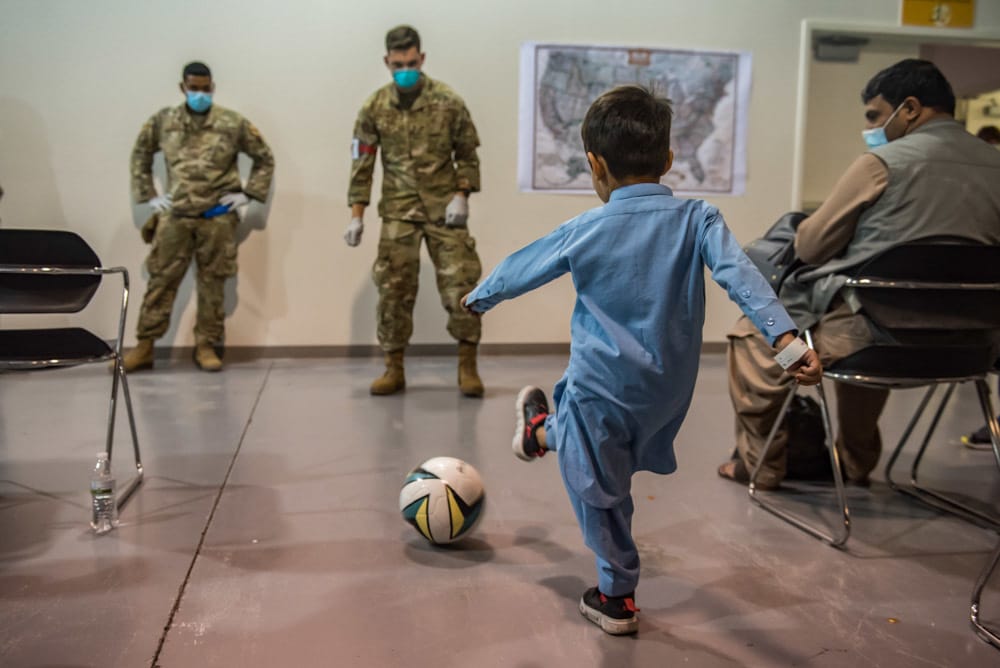
We have not always been on the right side of history. Today, we’re faced with a choice that will have devastating consequences for Afghans fleeing violence and persecution.
- During World War II, the U.S. turned away Jews due to security concerns. We sent shiploads back to the death camps because of outright religious and cultural prejudice, though some politicians at the time exploited that prejudice and warned that Nazi spies could hide in their midst. Many of those Jews died in the Holocaust when we could have saved them.
- We must not send those fleeing persecution back to their persecutors.
- The definition of moral courage is to resist allowing fear to overwhelm our humanity.
- Callous disregard for the fate of displaced Afghans—our potential allies in the struggle against the Taliban— will also drive them back to suffer a terrible fate.
- Afghans are fleeing war and violence, often leaving with almost nothing but the clothes on their back. Turning them away or sending them back into conflict is unconscionable.
- Many of us are Americans because our parents, grandparents, or great grandparents were refugees, seeking to escape poverty and violence, and the United States allowed us to pursue the American dream.
As people of faith, we value the dignity of people of all faiths and nationalities as our neighbors.
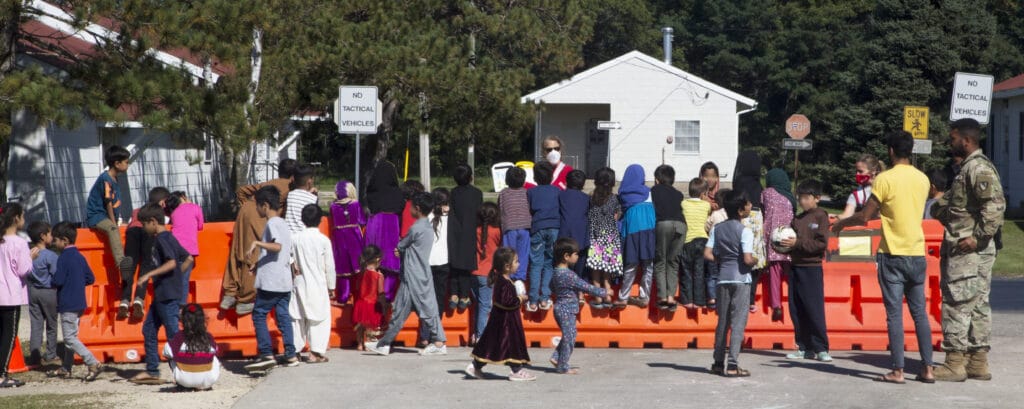
*The appearance of U.S. Department of Defense (DoD) visual information does not imply or constitute DoD endorsement.


